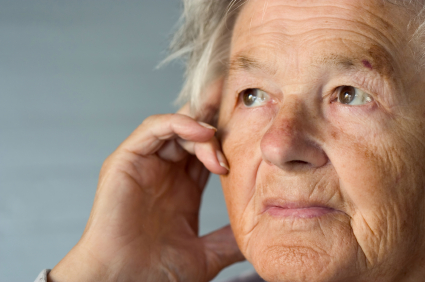Depression in the Elderly, Counseling Services Available in Broken Arrow for Tulsa Residents
By Alina Morrow, LPC-S, CAMS II, GC, CCTP
Disclaimer: The article below is for informational purposes only and should not be considered as direct advice, a personal diagnosis, or as an individual treatment plan. Always consult with a mental health professional or medical doctor if you have concerns.
Introduction and Overview
Depression among senior citizens is a more common problem then people might think. Statistics show that approximately 6 million Americans age 65 and older suffer from depression. Among them, only 10 percent receive proper treatment. Unfortunately, late-life depression is usually confused with the effects of the multiple illnesses associated with this age and the medication used for their treatment, or it is considered normal among elders. However, it must be emphasized that depression is NOT a part of the normal aging process.

Growing old can offer many advantages such as becoming more wise, patient and content with the life, but it can also be the cause of several disadvantages. The body slows down which leads to a decline in energy levels and efficiency, an increased risk for medical problems, declining ability to live life as one used to, and in some cases, the loss of independence. Getting older also means retirement, losing social networks, decrease in income, family members, and relocating or changing residences - all of which can lead to depression. Left undiagnosed or treated, depression can cause emotional pain for elders and their families.
Depression in seniors does not have to be confused with temporary down moods, sad feelings, and lethargy caused by disturbing or upsetting events. Depression is characterized by a persistent down mood that does not improve over time and interferes with the normal functions and activities.
Symptoms of Depression in Elderly
The symptoms of depression in the elderly often include:
- Agitation, anxiety, and irritability.
- Sadness, lack of good mood, and inability to laugh.
- Lack of interest or incapacity to feel pleasure in normal activities that were pleasant in the past.
- Persistent, vague or unexplained physical complaints.
- Appetite and weight changes (overeating, weight loss or gain).
- Sleep disturbance such as daytime sleepiness, difficulties falling asleep, multiple mid-night awakenings or early morning awakening.
- Lack of energy and increased fatigue.
- Discouragement, hopelessness, and feelings of worthlessness.
- Excessive or inappropriate guilt.
- Memory problems and difficulties concentrating.
- Social withdrawal and isolation.
- Negligence about personal care.
- Confusion, delusions, or hallucinations.
- Prolong grief after a loss.
- Suicidal thoughts or attempts.
Depression in seniors can have multiple causes, which include:
1. Psychological Factors:
- Unresolved or repressed traumatic events or experiences from childhood or late life.
- Previous history of depression.
- Body image problems caused by amputations, cancer surgery, or heart attack.
- Fear of death.
- Frustration caused by memory loss.
- Difficulties adjusting with challenging situations or conditions such as the loss of family members or close friends, loss of independency, or changes in housing and living conditions.
- Certain personality traits such as low self-esteem, extreme level of dependency on others, pessimism.
2. Environmental Factors:
- Loss of one's social network, family members and friends.
- Retirement (due to the adjusting process caused by the new role and routine).
- Social or physical isolation.
- Decreased mobility as a result of a medical condition or losing the driving privileges.
3. Physical Factors:
- An inherited tendency toward depression.
- Suffering from certain medical conditions such as Parkinson’s, Alzheimer's, cancer, diabetes and stroke.
- Certain medication such as: pain medication (codeine or darvon), high blood pressure drugs (clonidine or reserpine), hormones (estrogen, progesterone, cortical, prednisone, anabolic steroids), heart medication ( digitalis or propagator), chemotherapy agents (cycloserine, tamoxifen, nolvadex, velban, oncoming), Parkinson’s disease drugs (levadopa or bromocriptine), arthritis drugs (indomethacin), tranquilizers or ant anxiety drugs (valium or halcion).
- Neurotransmitters’ imbalance.
- Vascular changes in the brain.
- Chronic or severe pain.
- Substance abuse (alcohol).
Depression, if not diagnosed or treated, decreases the person’s quality of life and could lead to fatal consequences such as suicide or non-suicide mortality. Statistics show that the highest rate of suicide in USA is among older, white men, and the main cause is untreated depression.
Depression substantially increases the risk for death in those that suffer from medical conditions or physical illnesses. It can increase the impairment resulted from the medical problem by stopping the improvement progress and can interfere with person’s ability to follow a recovery plan and the necessary treatment.
